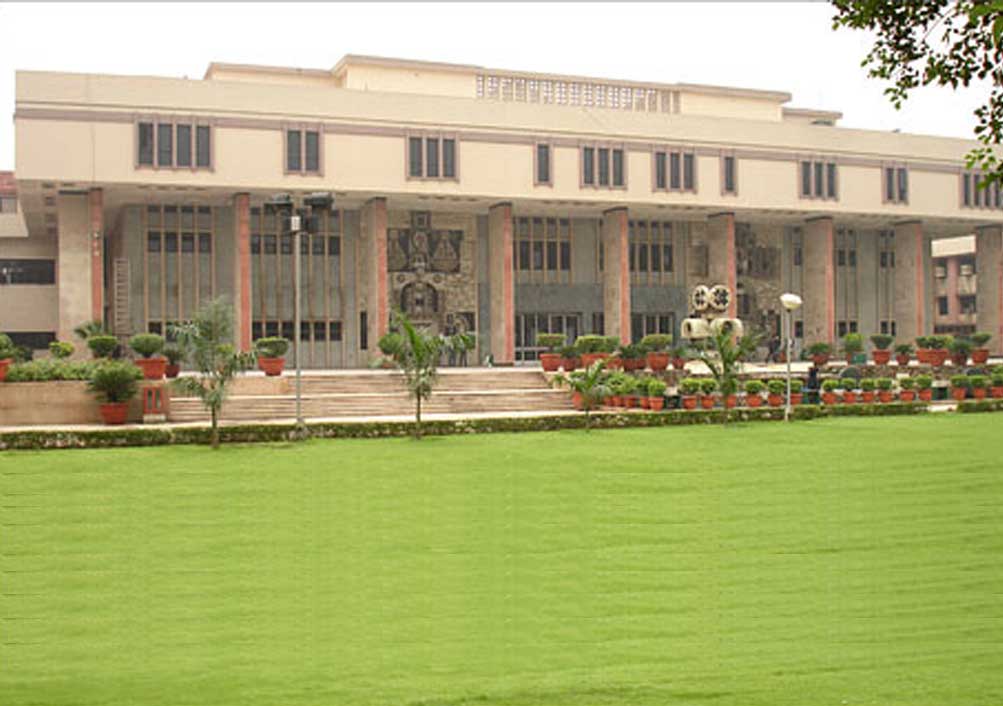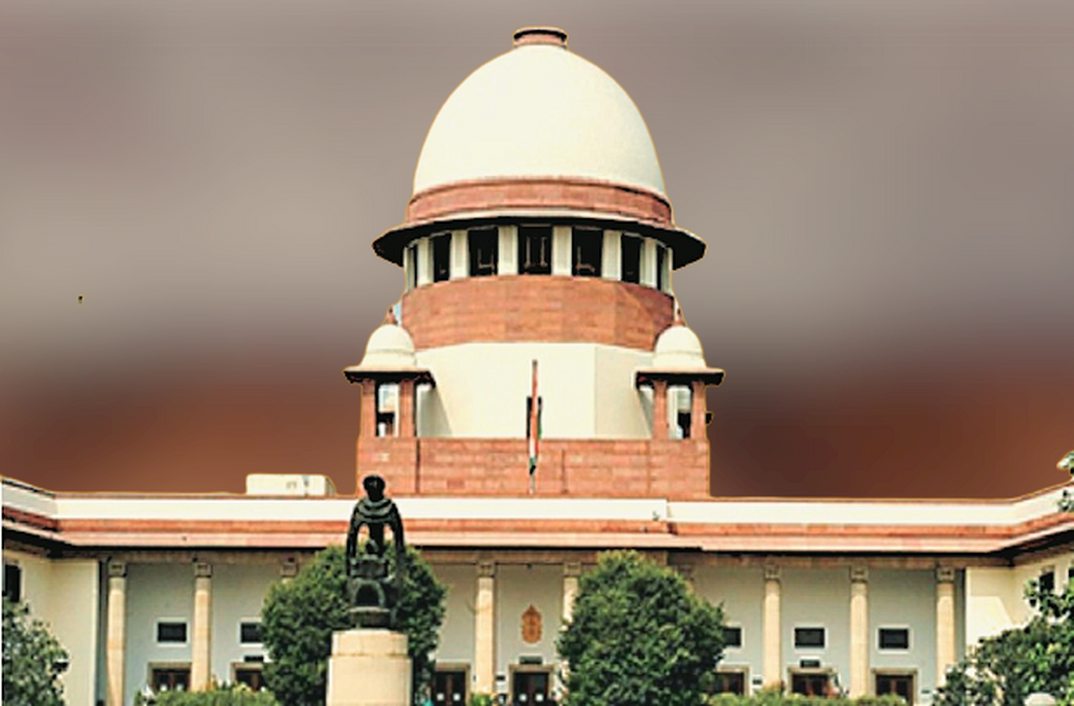Supporter of ISIS ideology; arranged illegal weapons: Delhi High Court dismisses appeal of UAPA accused challenging order rejecting his bail plea
Justices Suresh Kumar Kait & Manoj Jain [24-04-2024]

Read Order: JAMSHEED ZAHOOR PAUL v. STATE OF NCT OF DELHI [DEL HC- CRL.A. 51/2024]
Tulip Kanth
New Delhi, April 26, 2024: While observing that the appellant was in touch with cadres of ISIS which was sufficient to give insight into his culpable mind, the Delhi High Court has dismissed an appeal filed by a man booked under provisions of the Unlawful Activities (Prevention) Act (UAPA) challenging the rejection of his bail plea.
The incident is of the year 2018 when the Special Cell (New Delhi Range) received information that two persons i.e. Parvaiz Rashid Lone and Jamsheed Zahoor Paul (appellant herein) were radicalized youths of Jammu & Kashmir, having allegiance to banned terrorist organization ISIS/SI/DAESH. As per intelligence inputs, they had procured arms and ammunition from UP for their cadres for executing some terrorist act in Jammu & Kashmir. The information that they would come to Netaji Subhash Park, near Lal Quila (Red Fort) on 07.09.2018 to proceed to Kashmir and if raided, they could be caught with illegal weapons, was found to be correct.
The raiding team found the aforesaid named suspects moving towards Lal Qila. They were immediately overpowered. Their names and addresses were ascertained and their search was conducted. Search of the appellant yielded recovery of one pistol, containing five live cartridges in its magazine. From the possession of Parvaiz Rashid Lone (A-1) also, one pistol was recovered. These were seized.
Both the accused disclosed that they had procured the recovered weapons, in lieu of money from four persons from UP. When the police tracked them down, they were found to be juveniles in conflict with law (JCL) and, therefore, a separate report was prepared against them, which was filed before the Juvenile Justice Board (JJB).During investigation, both the accused divulged that they were propagating the ideology of terrorist outfit ISIS in India and were in touch with another ISIS militant, namely, Abdullah Basith. Said militant had already been arrested by NIA. FIR had been registered for commission of offence under Section 25 of Arms Act as well as Sections 18 & 20 of Unlawful Activities (Prevention) Act (UAPA).
The accused approached the Delhi High Court by filing an appeal under Section 21(4) of the National Investigation Agency Act, 2008 (NIA) praying therein that impugned order whereby his bail plea had been rejected, be set aside and consequently, he may be released on regular bail.
The Division Bench of Justice Suresh Kumar Kait and Justice Manoj Jain firstly explained that Section 18 & 20 UAPA fall under Chapter IV of UAPA which deals with punishment for terrorist activities. The Bench also said, “Though in adversarial system, there is presumption of innocence in favour of accused and, therefore, bail is generally a rule, UAPA contains modified application of certain provisions of Criminal Code of Procedure and thus commands that no person accused of an offence punishable under Chapter IV and/or Chapter VI shall, if in custody, be released on bail if there are reasonable grounds of believing that the accusation against such person is prima facie true.”
The High Court was of the view that once charges are framed, it can be easily assumed that there is a very strong suspicion against the accused. “Be that as it may, there can never be any restriction or embargo on moving application seeking bail. Such unfettered right remains available as long as the proceedings are alive”, it added.
Noting that the factual situation was not a case of chance recovery, the Bench opined that after the appellant was apprehended, a pistol of 7.65 caliber with five live cartridges loaded in its magazine was recovered from him. When his personal search was conducted, he was found in possession of two mobile phones.
As per respondent, appellant admitted that he was in contact with ISIS- JK Umar Iban Nazir (no more alive now) and Adil Thokar (absconding and untraceable) over Black Berry Messenger (BBM), a safe chat application and at their directions, he along with his co-accused had collected weapons from UP for their outfit. He also admitted that he had met Abdullah Basith (cadre of ISIS-JK) at Jama Masjid in Delhi in connection with supply of arms and ammunition for Tanjeem. He revealed that he was following cadres of ISIS (JK Module) through social media, BBM and Facebook and that his BBM account was with the name of PEHRAAN CHUN. Forensic analysis had also verified the same.
The involvement of co-accused was held to be much deeper as BBM Chat retrieved from his mobile contained discussion about Army movement in Kashmir. Both the accused had procured weapons from UP. They both had come to Delhi together and were planning to go to Kashmir together. “Therefore, at this initial juncture, it cannot be said that there was no agreement or tacit understanding or meeting of minds between them. They seemed to know each other very well and despite being fully conversant about their respective antecedents, they chose to stick together”, the Bench said.
The appellant was in touch with militants as well and he met one of them in Delhi. As per prosecution, weapons were being arranged for perpetuating terror and, therefore it was opined that there was material to show that there was a prima facie true case against the appellant.
The Bench asserted, “Thus, appellant, being supporter of ideology of ISIS, arranged illegal weapons and was involved in providing other logistic support to its cadres. It is also quite obvious that appellant had not only personally met Abdullah Basith but was communicating with Umar Iban Nazir and Adil Thokar. Merely because some of the incriminating BBM chats were found on the mobile of his co-accused would not mean that at this point of time, the said fact cannot be taken as a circumstance against the appellant…Moreover, Section 10 of Evidence Act cannot be kept aside which visualizes such type of situation and makes the actions and the statements of co-conspirator to be relevant as against the others. Such action or statement can even be used for proving the existence of conspiracy.”
Noticing that there were clear-cut allegations indicating that accusation against the appellant was prima facie true, the Bench said, “The appellant was in touch with cadres of ISIS which is sufficient to give insight of his culpable mind.” Reliance was also placed upon Arup Bhuyan v. State of Assam [LQ/SC/2023/329] wherein it has been observed that mere membership of banned organization is also sufficient to incriminate, without there being any overt act.
It was further stated by the Bench that in the case in hand, the maximum sentence provided under Section 18 & 20 UAPA is imprisonment for life and there was nothing which might indicate that prosecution was acting in a manner which was detrimental to his fundamental rights as provided under Part-III of the Constitution of India. Therefore, it was held at this juncture, merely because of the incarceration period of more than 5 years, the accused would not become entitled to bail.
Thus, noting that the High was taking up the matter diligently by giving shortest possible dates, the Bench dismissed the appeal.
Sign up for our weekly newsletter to stay up to date on our product, events featured blog, special offer and all of the exciting things that take place here at Legitquest.




Add a Comment